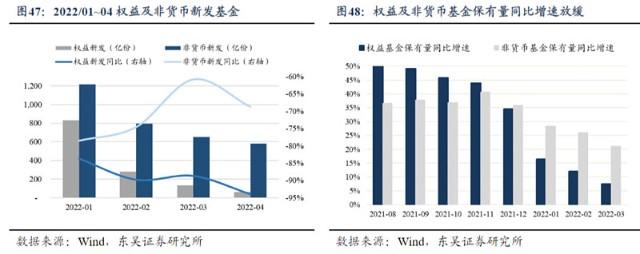Understanding the Valuation Role in Brokerage Firms' Mutual Funds Department
In brokerage firms' mutual funds departments, the valuation role plays a critical function in assessing the worth of various assets held within mutual fund portfolios. This position requires a blend of financial acumen, analytical skills, and market knowledge to accurately determine the value of securities. Let's delve into the specifics of the responsibilities, required skills, challenges, and potential career paths within the valuation role in brokerage firms' mutual funds departments.

Responsibilities:
1.
Asset Valuation:
The primary responsibility involves valuing the assets held within mutual fund portfolios. This includes equities, bonds, derivatives, and other securities. Valuation methods may vary depending on the type of asset, market conditions, and regulatory requirements.
2.
Market Analysis:
Monitoring market trends, economic indicators, and industry developments to assess the impact on asset values. This analysis helps in making informed decisions regarding portfolio composition and risk management.
3.
Risk Assessment:
Evaluating the risk associated with different assets and assessing their potential impact on the overall portfolio. This involves analyzing factors such as credit risk, market risk, liquidity risk, and operational risk.
4.
Compliance and Reporting:
Ensuring compliance with regulatory standards and reporting requirements related to asset valuation. This includes adhering to accounting standards (e.g., GAAP, IFRS) and regulatory guidelines (e.g., SEC regulations).
5.
Communication:
Collaborating with portfolio managers, traders, and other stakeholders to provide insights on asset valuation, market dynamics, and investment strategies. Effective communication skills are essential for conveying complex financial concepts in a clear and concise manner.
Required Skills:
1.
Financial Analysis:
Proficiency in financial modeling, valuation techniques, and performance metrics is essential. This includes discounted cash flow (DCF) analysis, comparable company analysis (CCA), and relative valuation methods.
2.
Quantitative Skills:
Strong mathematical and statistical skills are necessary for analyzing data, conducting scenario analysis, and developing quantitative models for asset valuation.
3.
Market Knowledge:
A deep understanding of financial markets, investment products, and macroeconomic factors is crucial for interpreting market trends and assessing the valuation of diverse assets.
4.
Attention to Detail:
Given the precision required in asset valuation, attention to detail is paramount to ensure accuracy in calculations and reporting.
5.
Adaptability:
The ability to adapt to changing market conditions, regulatory requirements, and technological advancements is vital in the dynamic landscape of financial markets.
Challenges:
1.
Market Volatility:
Fluctuations in asset prices and market volatility can pose challenges in accurately valuing securities, especially during periods of heightened uncertainty.
2.
Regulatory Changes:
Evolving regulatory standards and reporting requirements may necessitate adjustments in valuation methodologies and processes to ensure compliance.
3.
Complex Securities:
Valuing complex financial instruments such as derivatives, structured products, and alternative investments requires specialized knowledge and sophisticated valuation techniques.
4.
Data Integrity:
Ensuring the accuracy and integrity of data used in valuation processes is essential for producing reliable results and maintaining investor confidence.
Career Paths:
1.
Senior Valuation Analyst:
Experienced professionals may advance to senior roles overseeing valuation teams, developing valuation policies, and providing strategic guidance on asset pricing.
2.
Portfolio Manager:
With a strong background in asset valuation, individuals may transition to portfolio management roles, where they oversee investment strategies and manage client portfolios.
3.
Risk Manager:
The expertise gained in assessing the risk associated with different assets can lead to roles in risk management, where professionals focus on identifying, measuring, and mitigating risks within investment portfolios.
4.
Quantitative Analyst:
Those with strong quantitative skills may pursue roles as quantitative analysts, where they develop mathematical models and algorithms for asset pricing, risk management, and trading strategies.
Conclusion:
The valuation role in brokerage firms' mutual funds departments is instrumental in determining the fair value of assets held within investment portfolios. Professionals in this role play a vital role in supporting investment decisions, managing risk, and ensuring compliance with regulatory standards. By possessing a blend of financial expertise, analytical skills, and market knowledge, individuals can excel in this challenging yet rewarding career path within the financial services industry.
I've structured the content according to your request. Let me know if you need any modifications or further details!





